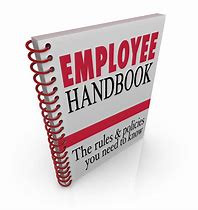Below is a review of the posts (on Facebook, LinkedIn, and X [formerly Twitter]) from the past week. You can check out the full posts by clicking on the links.

The post on Sunday 1/14/2024 was about a mining company sued by former VP for religious discrimination. Question: will the new standard in Groff v. DeJoy be applied retroactively? The defendant, Newmont Corporation, a massive mineral mining corporation based in Colorado, was charged with religious discrimination and retaliation in violation of Title VII in a federal lawsuit filed 12/21/2023. The suit alleges that Newmont denied Dan Janney, the former VP for North America, a reasonable religious accommodation to its COVID-19 vaccine mandate and then terminated him when he did not receive the vaccine. As for the allegations supporting the retaliation charge, see the post. Janney alleges that Newmont terminated him a mere eight months before he would have vested in his pension.
Relative to the requested accommodation, Janney alleges that Newmont did not offer him any alternatives to taking the vaccine (not even those listed in the post, many of which became fairly standard during the pandemic). Allegedly Newmont denied Janney’s accommodation request on August 2, 2021, and terminated him on August 4, 2021. As to the dollars that might be at issue (based on Janney’s position and compensation), see the post.
As to the burden-shifting that must occur in any religious discrimination suit, Janney alleges that Newmont would have suffered no undue hardship if it had granted him an accommodation. The question is whether Newmont’s must meet the standard for undue hardship that was in place before the Supreme Court’s decision in Groff v. DeJoy (discussed in the post), which decision was handed down this past summer, since the actions occurred pre-Groff, or the standard set forth in Groff.
Janney’s lawsuit is the third filed against Newmont for alleged religious discrimination. On November 2, 2023 (post-Groff), Tavis Roger, a former Director, sued Newmont because it denied his request for a religious accommodation to the vaccine and terminated his employment when he did not take the vaccine. Previously, in April 2023 (pre-Groff), another suit was filed; what it is about is in the post.
Janney requests a jury trial and seeks back pay, compensatory damages, punitive damages, and other relief.
TAKEAWAY: Employers must not only engage in the interactive accommodation process but explain why providing a reasonable accommodation would be an undue hardship (under the new standard in Groff v. DeJoy).

The post on Monday 1/15/2024 was an alert: heightened labor scrutiny looms over workplace rules. Yes, the NLRB has changed the standard by which it evaluates such rules. And you care because many (most?) rules affect the terms and conditions of employment and so the National Labor Relations Act applies to all workplaces, union and non-union. But you REALLY care if new rules are issued while employees are trying to unionize (because that timing can look fishy and will weigh against you). The numbers on unionization are staggering – see the post – and continuing to increase. And we don’t just mean at national companies like Starbucks and Amazon.
You (should) know that most private-sector employees have the legal right to participate in “concerted activity” with their colleagues – that includes the things noted in the post. And while employers can put in place workplace policies to help their business, those policies might seem suspicious in the right circumstances (yes, see the post). So if an employer adopts or amends a workplace policy (be it related to wages or performance or other), it is probably easily defensible prior to unionization efforts. But what about if it happens after unionization has begun? See the post for how that might be characterized.
But the timing of unionization relative to workplace rules is not the only consideration. The standard used by the NLRB changed in August 2023. We discussed this in our prior posts on August 27, 2023, September 29, 2023, and January 5, 2024 (and our blogs covering those dates). The new Stericycle standard is less friendly to employers. Under the new standard, the Board does not consider certain workplace policies as automatically lawful. Instead, it will look at all contested policies on a case-by-case basis. It will first ask whether an employee could reasonably interpret the rule as restricting their right to organize. If an employee could answer yes, then the board will proceed as described in the post.
The problem with this new standard is that rules that seemed to be perfectly legal before might now be subject to unfair labor practice charges. Broad rules may be at special risk under Stericycle – an example of this is in the post. So, what is an employer to do? Put the proposed rule (or amendment) under a microscope, especially if employees are unionizing.
TAKEAWAY: Even more so now, workplace rules should be narrowly tailored to meet a purpose; have a labor and employment lawyer comb through your policies to make sure they do (or will) meet legal muster

The post on Tuesday 1/16/2024 told us that the EEOC may issue new Guidance on workplace harassment in 2024. For the first time in 25 years the EEOC is likely to publish new Enforcement Guidance on Harassment in the Workplace. This past September it issued Proposed Enforcement Guidance on Harassment in the Workplace and a public comment period ensured. Some provisions of the proposed guidance of which you should take notice include:
- Formal recognition that sex-based harassment includes harassment based on sexual orientation and gender identity and how that identity is expressed;
- Identification of baseline expectations for effective anti-harassment policies and training and the harassment complaint process;
- Clarification that when an employer evaluates harassment allegations, it must review the entire context in which the conduct arises (because context can make a difference as noted in the post) and keeping in mind that there is no “crude environment” exception to Title VII (which takes away a defense touched on in the post);
TAKEAWAY: Now is the time for employers to review existing policies and practices (including training) and make sure they (will) comply with the new Guidance – have an employment lawyer do a go-through also.

The post on Wednesday 1/17/2024 told us a gated HOA community was sued for discrimination, blocking access to public road. Here an upscale gated community in Maryland is being sued over a claim that only people who can afford to live in the community have access to a county (i.e., public) road.
The federal lawsuit was filed by two people who regularly use Pleasant Prospect Road. They claim that those who can’t afford to live in the community are being discriminated against and are denied access to a public road. The road at issue is horseshoe-shaped — and the only road through the subdivision, which includes a golf course. The complaint includes among the defendants the Homeowners Association, County, and county individuals (in their official capacities).
According to the suit, the trigger was installation of an electronic gate on the east side of the road. Community residents can get in – see the post. And on the west end of the road, driver access is at a gatehouse (which entails the process noted in the post). The suit distinguishes communities that have followed procedure to privatize a public road from this situation.
The plaintiffs in this suit are Kimberly Jackson, whose friend lives in the subdivision, and Brent Taliaferro, an assistant golf pro who works at the Country Club accessed by the subject road. Last September the HOA sent a letter to the country club that affected road access; the details are in the post. The complaint claims denial of access to a public road and the nuisance of explaining their presence. There are also allegations of discrimination on the bases described in the post – which will sound familiar to employment lawyers but also apply in the HOA/condo context.
The suit claims the defendants are depriving Jackson and Taliaferro “of their right to travel and freely move on a public roadway.” It’s requesting the gates and guardhouse no longer be used as a way to charge drivers to use the public road, as well as financial damages.
The HOA Board sent a letter to community residents. What is claims is the crux of the suit is noted in the post. But is that responsive to the allegations? The County did not comment.
TAKEAWAY: Community associations must remember that they need to comply with state and local ordinances as well as federal, state and local laws against discrimination. Having a knowledgeable community association lawyer on speed dial is recommended.

In the post on Thursday 1/18/2024, we saw that a condo unit of 3 train cars is for sale – but there’s a catch. Got your attention, right?! What was once a unique hotel stay in Wisconsin is now a rare vacation home — and a cool piece of history. Look at the pics as you go through the post.
A two-bedroom, one-bathroom condo made out of three connected train cars is on the market for $125,000 in a picturesque resort city about an hour south of Milwaukee. Want a bit of history on the 43 train cars that sit on an abandoned track? See the post.
Father and son David and Michael Hanley bought the 43 cabooses in 1983 after converting a train car into a guest home for their Wisconsin summer home. How much did they spend to purchase each car? See the post. The Hanleys renovated the train cars and opened them as a motel in December 1984. What the cars rented for at that time is noted in the post. Then the Hanleys purchased the 1,800-foot right of way the train cars sit on for $17,000. In the 1990s, the cars were turned into condominium units and sold to individual buyers. They don’t come up for sale often; a twin-caboose condo was listed in September 2021 (the list price is in the post) and a three-car condo (again, list price is in the post) is the most recent listing.
Three sisters decided to part with the property after having it in the family since the 1990s. It really sounds like a normal housing unit – It’s about 960 square feet and has a deck. How the three cabooses are configured is in the post. The family that owns them did some remodeling from the hotel days, including adding kitchen appliances and more as in the post. And like many other condo communities, owners here have access to a building with a pool in the summer.
The condos have fans and AC units that are great for summer, but then there’s the catch. See the post. But that’s not all. Potential buyers looking for a short-term rental investment are out of luck. Similar to many condo associations, this one doesn’t allow short-term rentals.
TAKEAWAY: Keep in mind that condominiums take many structural forms – but all are still subject to the local weather and their Governing Documents.

The post on Friday 1/19/2024 was a halfway-through-January reminder to know the Top Five 2024 employee policies and issues to check. First up is paid time off (PTO) and leave policies. They must comply with federal and state laws, some of which may have changed recently. Next are confidentiality and non-disparagement provisions (especially in the documents noted in the post, and related to the NLRB’s current position which also is in the post). Third are non-compete agreements and their compliance with state law (which also may have changed recently). The other two items are listed and described in the post and deserve your attention.
TAKEAWAY: Employers should periodically review their policies and procedures to ensure legal compliance; doing so with an employment lawyer is the smart thing to do.

Finally, in the post yesterday 1/20/2024, we saw that UPS to pay $150K to settle EEOC disability discrimination lawsuit. Let’s see what UPS allegedly did (or did not do) this time. According to the EEOC’s suit, the employee asked an HR rep for an accommodation: an occasional short break to check his blood sugar and eat or drink something if necessary. UPS initially agreed to the request, but then pulled back (what the HR rep then said is in the post) and fired him. The suit was filed in federal court in Florida after conciliation failed (seemingly standard in cases filed against UPS).
On March 15, the court entered an order that UPS had violated the ADA. But that did not end the case. The court also directed the parties to meet and confer to resolve the remaining issues. They did. In addition to the $150,000 in monetary relief, there is to be a three-year consent decree with a fair amount of non-monetary relief and oversight as detailed in the post.
TAKEAWAY: If an internal issue turns into an administrative charge, try to resolve it before that becomes a lawsuit in which you are a defendant. Get an employment lawyer involved early on.

 York, Pennsylvania 17403
York, Pennsylvania 17403